Herbal teas have been used for centuries to promote health and wellness. In recent years, there has been a growing interest in using herbal teas to support hormonal balance. Hormonal imbalances can cause a range of symptoms, including mood swings, fatigue, and weight gain.
Disclaimer: This article is provided for informational purposes only and should not replace professional medical advice. Please consult with a qualified healthcare practitioner or herbalist before using any herbal remedies.
There are many different herbal teas that can help support hormonal balance. Some of the most popular herbs used in these teas include red raspberry leaf, stinging nettle leaf, and black cohosh root. These herbs are believed to help regulate hormone levels, reduce inflammation, and support liver function, among other benefits.
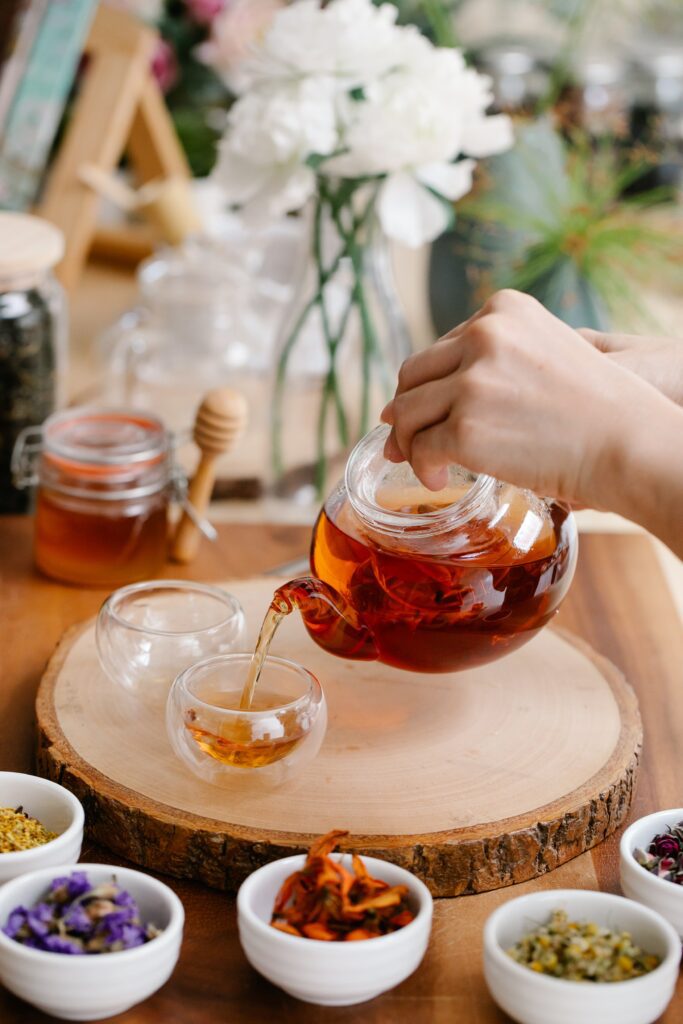
In this article, we will explore 15 different herbal tea blends that can help promote hormonal balance. Whether you are dealing with PMS, menopause, or other hormonal imbalances, these teas may offer a natural and effective way to support your health and well-being.
Understanding Hormonal Balance
Hormonal balance is essential for overall health and wellbeing. Hormones are chemical messengers that regulate various bodily functions, including metabolism, growth, and reproduction. Hormonal imbalances can cause a range of symptoms, including irregular periods, acne, weight gain, mood swings, and fatigue.
Several factors can disrupt hormonal balance, including stress, poor diet, lack of sleep, and environmental toxins. Hormonal imbalances can also occur naturally during puberty, menopause, and pregnancy.
It’s important to maintain hormonal balance to prevent health issues and promote optimal wellness. Eating a balanced diet, getting enough sleep, reducing stress, and exercising regularly can all help maintain hormonal balance.
Herbal teas can also be a natural and effective way to support hormonal balance. Certain herbs contain compounds that can help regulate hormones and ease symptoms of hormonal imbalances. It’s important to note that herbal teas should not be used as a replacement for medical treatment, and individuals should consult with a healthcare provider before using herbal preparations.
15 Herbal Tea Blends for Hormonal Balance
Herbal teas have been used for centuries to support balanced hormones in the body. Here are 15 herbal tea blends that can help promote hormonal balance:
1. Red Raspberry Leaf Tea
Red raspberry leaf tea is a popular herbal tea that has been used for centuries to help promote hormonal balance. It is rich in antioxidants and its astringent properties are believed to help regulate menstrual cycles, lighten flow, and reduce menstrual cramps. Its high in vitamins and minerals which makes Red Raspberry a wonderful nutritive tonic for all cycles or womanhood (though its also very helpful for men).
Red Raspberry has no contraindications, does not have any side effects, and is generally considered safe for all stages of life and fertility, including pregnancy.
2. Chaste berry Tea
Chaste berry tea, also known as Vitex berry, is a powerful hormone balancing tea used to support your body in dealing with issues like irregular or painful periods, breast pain, infertility, PMS, menopause, and birth control discontinuation. It essentially neutralizes or normalizes female sex hormones that are too high or too low. Chaste berry has a stimulating effect on the pituitary gland, which regulates and normalizes hormone production, among other functions. Studies have found that Chaste berry increases the production of luteinizing hormones, enhancing the progesterone cycle, which may be especially helpful when dealing with difficulty establishing or maintaining a pregnancy. It also normalizes the estrogen cycle, making this an excellent resource in balancing the cycle as a whole. Chaste Berry is most effective when taken as an extended tonic and no side effects have been found from extensive and extended use of this herb.
3. Dong Quai Tea
Dong quai tea is a traditional Chinese herbal tea that has been used for centuries to help balance hormones. It is particularly helpful for women experiencing menopause symptoms like hot flashes and mood swings. Known as the “female ginsing”, it is effective for both women and men. Dong Quai effects hormone production through strengthening the liver and endocrine system. Its nourishing to the blood and and has a mild stimulating effect on the liver. It also has mild calming and relaxing qualities for your nervous system.
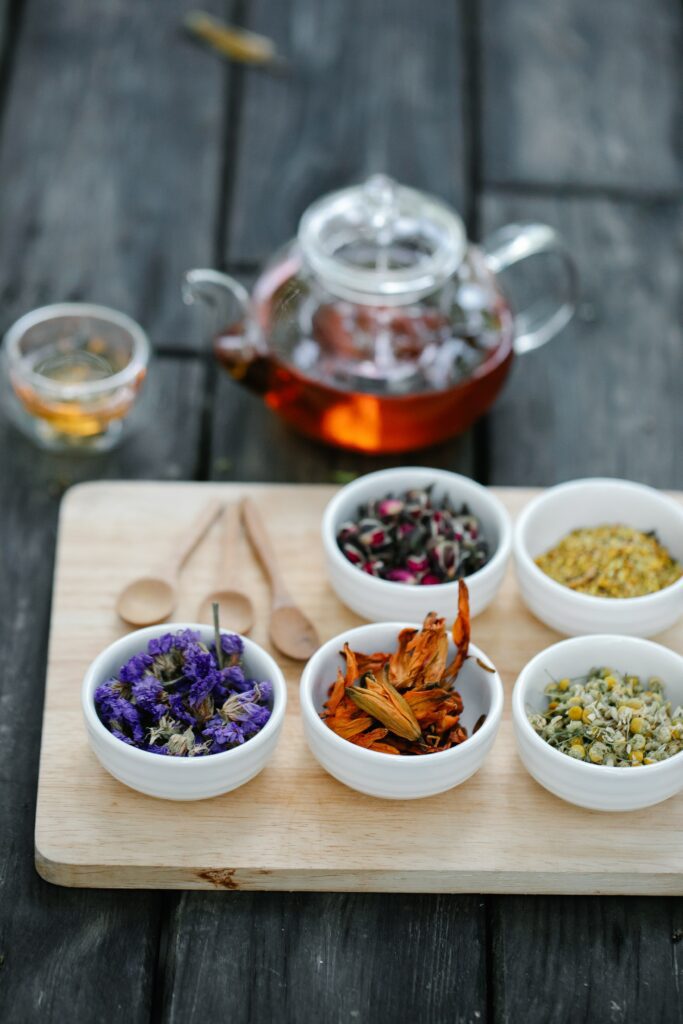
Dong Quai may stimulate bleeding and therefore is not recommended for use during pregnancy or while menstruating. Other than this caution, it may be used for extended periods safely and is non toxic for long term use.
4. Black Cohosh Tea
Black cohosh contains compounds called phytoestrogens, which are plant-based compounds that have estrogen-like effects in the body. These phytoestrogens may bind to estrogen receptors, and help modulate estrogen activity in the body. This can help balance estrogen levels in women, especially during times of hormonal fluctuations such as menopause. It is particularly helpful for menopause symptoms like hot flashes, mood swings, and vaginal dryness.
Black cohosh has been shown to have an effect on serotonin, which is a neurotransmitter that plays a role in mood regulation. Some research suggests that black cohosh may help regulate serotonin levels in the brain, which can in turn help alleviate mood swings and other symptoms associated with hormonal imbalances. Black cohosh may also affect other neurotransmitters, such as dopamine and norepinephrine, which play a role in mood regulation and hormonal balance. Modulating these neurotransmitters may help alleviate symptoms associated with hormonal imbalances.
Though Black Cohosh is nontoxic, it should not be used at the beginning of pregnancy as it is a uterine stimulant. It is often used at the end of pregnancy however, to stimulate labor.
5. Milk Thistle Tea
Milk thistle is well-known for its liver-protective properties. The liver plays a crucial role in hormonal balance as it metabolizes and detoxifies hormones from the body. By supporting liver health, Milk Thistle may help optimize liver function, leading to improved hormonal balance. It has also been found to have estrogen-modulating effects, milk thistle has been shown to bind to estrogen receptors, which may help regulate estrogen levels in the body. This can be particularly beneficial for women who experience hormonal imbalances related to estrogen dominance. Some studies have also suggested that Milk Thistle helps with metabolizing some hormones, such as testosterone and progesterone. BY supporting hormone metabolism, Milk Thistle may help maintain hormonal balance. Milk thistle is nontoxic and fully edible.
6. Nettle Leaf Tea
Nettle is rich in vitamins and minerals, including vitamin C, vitamin K, iron, magnesium, and calcium, among others. These nutrients play important roles in the production, regulation, and balance of hormones in the body. For example, vitamin C is involved in the production of adrenal hormones, while magnesium is required for the synthesis of many hormones, including those related to stress and sleep. By providing these essential nutrients, nettle may support healthy hormone production and regulation.
Nettle contains compounds known as phytoestrogens, which are plant-based compounds that can mimic the effects of estrogen, a female sex hormone, in the body. Phytoestrogens can bind to estrogen receptors in the body and exert estrogenic or anti-estrogenic effects, depending on the hormonal context. This may help regulate estrogen levels in the body, potentially helping to balance hormonal fluctuations related to conditions such as menopause.
Nettle leaf tea is known for regulating blood sugar, supporting the liver, and fighting inflammation. It may also lower DHT, a hormone that is strongly linked to female hair loss. Native American women used Nettle as a pregnancy tonic and a remedy for hemorrhaging during childbirth. Nettle helps reduce water retention, ease the symptoms of PMS, and heavy menstruation. Nettle is considered safe for use over an extended period of time.
7. Licorice Root Tea
While probably better known for its candy, the root of the licorice plant is some 50% sweeter than sugar, making it an excellent addition to any tea blend that may be on the bitter side. It has been used in women’s herbal formulas for centuries, due to its estrogenic and steroidal properties, encouraging balanced hormone production. Licorice has proven especially effective in easing adrenal exhaustion, infertility due to hormonal imbalance, and menopausal disfunction.

Licorice has long been considered completely safe and non toxic, however in recent years there have been some cases reported of raised blood pressure and water retention caused by very concentrated extracts of licorice or licorice products, so caution must be exercised when there is a tendency towards high blood pressure, kidney or urinary tract problems, or during pregnancy.
8. Maca Tea
Maca is classified as an adaptogen, which means it may help the body adapt to stress and restore balance in various physiological systems, including the endocrine system responsible for hormone production and regulation. By supporting the body’s response to stress, maca may help regulate hormone levels, including cortisol, which is the hormone produced during times of stress. Maca has been found to potentially have an estrogenic effect in the body, helping balance estrogen levels. Some studies have shown that maca may have a modulating effect on estrogen levels in postmenopausal women, potentially helping to calm some of the symptoms associated with hormonal imbalances during menopause.
Maca has been traditionally used as a fertility-enhancing herb and may have beneficial effects on reproductive health. Some studies have shown that maca may support higher sperm quality and motility in men, and may also help balance menstrual cycles and improve fertility in women. Some research suggests that maca may also have a positive impact on thyroid function. The thyroid gland produces hormones that regulate metabolism and energy production, and imbalances in thyroid hormones can result in hormonal disruptions. Maca may potentially support healthy thyroid function, which in turn may help balance hormones.
9. Ashwagandha Tea
Ashwagandha is known for its adaptogenic properties, which means it helps the body cope with stress. Chronic stress can disrupt hormonal balance by triggering the release of stress hormones such as cortisol, which can lead to imbalances in other hormones. Ashwagandha has been shown to reduce cortisol levels in the body, thereby helping to calm the stress response and potentially supporting hormonal balance.
The thyroid gland plays a crucial role in regulating metabolism and energy production, and imbalances in thyroid hormones can have a significant impact on hormonal balance. Ashwagandha has been shown to support thyroid function by helping to balance levels of thyroid hormones, such as T3 and T4. Ashwagandha has also been shown to have antioxidant properties that protect the thyroid gland from oxidative stress, which can help maintain its proper functioning.
Ashwagandha has been traditionally used as a reproductive tonic in Ayurvedic medicine, and it is believed to help balance reproductive hormones. Studies have shown that Ashwagandha may help balance menstrual cycles and improve fertility in women. Ashwagandha has also been shown to support healthy testosterone levels in men, which can help balance male hormones.
Hormonal imbalances can also be related to insulin resistance and disrupted blood sugar levels. Ashwagandha has been shown to have anti-diabetic properties and may promote healthy blood sugar levels by improving insulin sensitivity. By supporting healthy blood sugar levels, Ashwagandha may indirectly help balance hormones related to metabolism and energy regulation.
Ashwagandha is known for its antioxidant properties, which help neutralize harmful free radicals in the body. Oxidative stress caused by free radicals can disrupt hormonal balance and contribute to hormonal imbalances. Ashwagandha’s antioxidant activity may help protect against oxidative stress, thereby supporting hormonal balance.
It’s important to note that while Ashwagandha has been shown to have potential benefits in supporting hormonal balance, individual results may vary. It’s always recommended to consult with a qualified healthcare professional before starting any new supplement or making significant changes to your diet or lifestyle, especially if you have any existing health conditions or are taking medications.
10. Rhodiola Rosea Tea
Rhodiola Rosea has been found to help regulate cortisol, which is often referred to as the “stress hormone.” Cortisol is released in response to stress, and chronic stress can disrupt hormone balance. Rhodiola Rosea has been shown to help reduce cortisol levels, which may help to balance hormones in individuals experiencing stress-induced hormonal imbalances.
Rhodiola Rosea may also have a positive effect on thyroid function. The thyroid gland produces hormones that regulate metabolism and energy production. Rhodiola Rosea has been shown to potentially support healthy thyroid function, which could help balance hormones in individuals with thyroid-related hormonal imbalances.
Some studies have suggested that Rhodiola Rosea may have estrogen-modulating effects. Estrogen is a female sex hormone that plays a crucial role in reproductive health and other physiological processes. Rhodiola Rosea has been found to potentially modulate estrogen receptors, which could help balance estrogen levels in women experiencing hormonal imbalances related to menstruation, menopause, or other estrogen-related conditions.
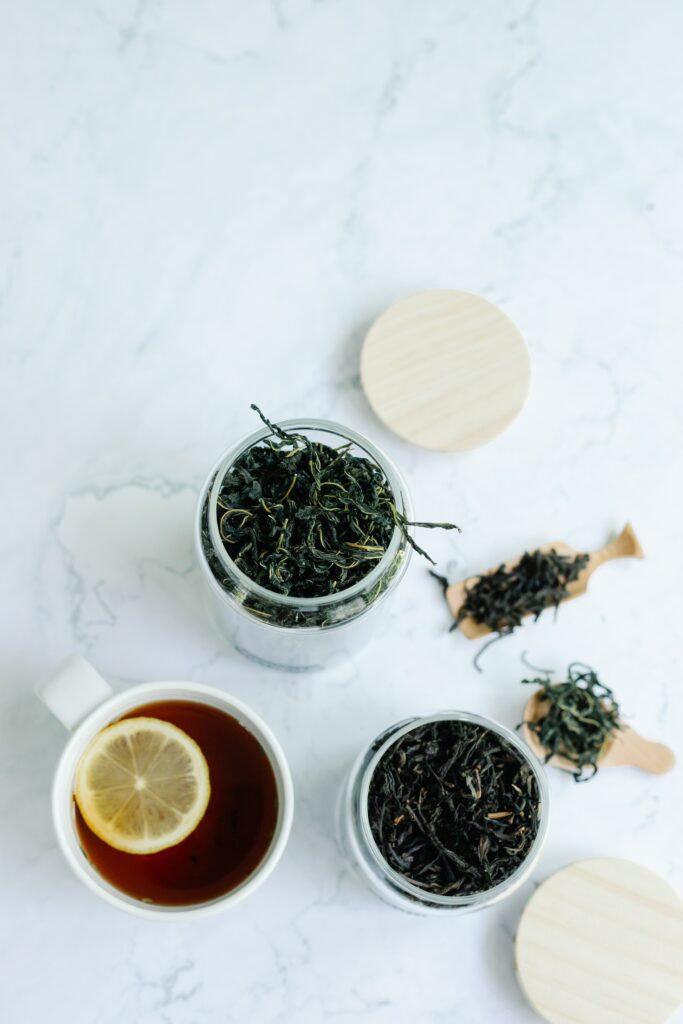
Rhodiola Rosea may also have a positive effect on testosterone levels. Testosterone is a male sex hormone, but it is also present in females in smaller amounts and plays a role in reproductive health, muscle growth, and bone density. Rhodiola Rosea has been shown to potentially support healthy testosterone levels, which could help balance hormones in individuals with testosterone-related hormonal imbalances.
Rhodiola Rosea has been suggested to support healthy adrenal function. The adrenal glands produce hormones that are involved in stress response and energy regulation. Rhodiola Rosea has been found to potentially support adrenal health, which could help balance hormones in individuals with adrenal-related hormonal imbalances.
11. Holy Basil Tea
Holy Basil, also known as Tulsi, is a popular herb used in Ayurvedic medicine that has been traditionally used for its numerous health benefits, including its tendancy to help balance hormones. Here are several ways how Holy Basil can help balance hormones:
Adaptogenic properties: Holy Basil is classified as an adaptogen, which means it may help the body adapt to stress and restore balance. Hormonal imbalances can be triggered by stress, and Holy Basil’s adaptogenic properties can help regulate the stress response in the body, which in turn can help balance hormones.
Holy Basil is rich in antioxidants, such as eugenol, rosmarinic acid, and apigenin, which may help neutralize harmful free radicals in the body. Free radicals can damage cells and disrupt hormonal balance. By reducing oxidative stress, Holy Basil supports healthy hormonal function.
Holy Basil possesses anti-inflammatory properties that can help reduce inflammation in the body. Chronic inflammation can disrupt hormonal balance, and Holy Basil’s anti-inflammatory effects may help ease this imbalance and promote hormonal equilibrium.
Holy Basil has been shown to help balance blood sugar levels and improve insulin sensitivity. Blood sugar imbalances and insulin resistance can affect hormonal balance, particularly in conditions such as polycystic ovary syndrome (PCOS). By supporting healthy blood sugar regulation, Holy Basil may help balance hormones in conditions related to insulin resistance.
Holy Basil has also been shown to have a positive effect on thyroid function. The thyroid gland plays a critical role in regulating hormones in the body. Holy Basil may help support healthy thyroid function, which may contribute to hormonal balance.
12. Evening Primrose Tea
Evening primrose oil (EPO) is derived from the seeds of the evening primrose plant (Oenothera biennis) and is known for its potential to help balance hormones. It contains an omega-6 fatty acid called gamma-linolenic acid (GLA), which is believed to be responsible for its hormonal balancing effects. GLA, found in evening primrose oil, is converted in the body into a substance called prostaglandin E1 (PGE1), which plays a role in regulating hormones. PGE1 has anti-inflammatory properties and may help regulate hormones such as estrogen and progesterone. GLA may help improve skin health and improve acne and eczema by reducing inflammation and promoting healthy skin growth.
Evening primrose oil has been studied for its potential benefits in managing symptoms of premenstrual syndrome (PMS) and supporting a regular menstrual cycle. Some studies suggest that EPO may help reduce issues such as breast tenderness, mood swings, and bloating associated with PMS.
Evening primrose oil has also been studied for its potential benefits in managing symptoms of menopause, such as hot flashes and mood swings. Some research suggests that EPO may help reduce the severity and frequency of hot flashes in menopausal women.
Evening primrose oil has been used as a natural remedy to support fertility by promoting healthy cervical mucus production, which can facilitate sperm transport and increase the chances of conceiving.
13. Passionflower Tea
Passionflower, also known as Passiflora incarnata, is a plant that has been used for centuries for its medicinal properties, including its potential to help balance hormones. While the exact mechanisms of how passionflower affects hormone balance are not fully understood, there are several ways in which passionflower may help with hormonal regulation.
Passionflower has been known to have calming properties that may help reduce stress and anxiety. High stress levels disrupt the delicate balance of hormones in the body, including those that manage the menstrual cycle in women and testosterone levels in men. By reducing stress, passionflower may indirectly help balance hormones by mitigating the negative effects of stress on hormonal regulation.
Passionflower has mild sedative effects and may help improve sleep quality. Quality sleep is essential for maintaining hormonal balance as many hormone-regulating processes occur during sleep, including the production and release of hormones such as growth hormone, melatonin, and cortisol. By promoting restful sleep, passionflower may support proper hormonal regulation.

Passionflower contains antioxidants, which are compounds that help protect cells from oxidative stress caused by free radicals. Oxidative stress has been implicated in disrupting hormonal balance, and antioxidants may help counteract this effect. Passionflower’s antioxidant properties may help protect hormonal glands and tissues from oxidative damage, thus promoting hormonal balance.
Passionflower has anti-inflammatory properties, and chronic inflammation has been linked to hormonal imbalances. By reducing inflammation, passionflower may help restore hormonal balance.
Some studies suggest that passionflower may directly affect the production and release of certain hormones. For example, research has shown that passionflower may help regulate levels of estrogen, a key female hormone, and may also have an effect on progesterone, another important female hormone involved in menstrual cycle regulation. Please consult your doctor with any concerns.
14. St. John’s Wort Tea
St. John’s Wort (Hypericum perforatum) is a flowering herb that has been used traditionally for its medicinal properties. While it is commonly known for its potential antidepressant effects, there is limited scientific evidence to support its role in balancing hormones.
St. John’s Wort contains several bioactive compounds, including hypericin and hyperforin, which are believed to have antidepressant properties. These compounds are thought to work by increasing the levels of certain neurotransmitters in the brain, such as serotonin, dopamine, and norepinephrine, which are involved in mood regulation. However, the mechanism of action of St. John’s Wort is not fully understood, and more research is needed to determine its exact effects on hormones.
In terms of hormonal balance, some studies have suggested that St. John’s Wort may have a mild effect on certain hormones. For example, it has been found to have weak estrogenic activity, which means it can interact with estrogen receptors in the body. However, the overall impact of St. John’s Wort on hormonal balance is not well established, and more research is needed to fully understand its effects.
It’s important to note that St. John’s Wort can interact with other medications and have potential side effects, including photosensitivity, gastrointestinal symptoms, and interactions with other medications. It is also known to interfere with the effectiveness of certain medications, such as oral contraceptives and some antidepressant and anticoagulant medications. Therefore, it is crucial to consult with a qualified healthcare professional before using St. John’s Wort or any other herbal supplement, especially if you are pregnant, breastfeeding, or taking other medications. A healthcare professional can provide personalized advice and help you determine if St. John’s Wort is safe and appropriate for your specific hormonal health needs.
15. Chamomile Tea
Chamomile, a natural herb derived from the chamomile plant, has been used for centuries for its various health benefits, including its potential to help balance hormones. Chamomile is known for its calming properties, and it may help to reduce stress and anxiety. When the body is under stress, it produces stress hormones such as cortisol, which can disrupt the balance of other hormones in the body. By promoting relaxation, chamomile may help to reduce the production of cortisol and other stress hormones, which in turn may help to balance hormones.
Adequate sleep is essential for maintaining hormonal balance. Chamomile has mild sedative effects and may help improve the quality of sleep, thus aiding in hormonal regulation. Restful sleep allows the body to go through its natural hormonal fluctuations and helps to regulate hormone production and secretion.
Chamomile contains antioxidants such as flavonoids that may help to reduce inflammation and oxidative stress in the body. Oxidative stress can disrupt hormonal balance and contribute to hormonal disorders. By neutralizing harmful free radicals, chamomile’s antioxidant properties may help to support hormonal balance.
Chamomile has anti-inflammatory properties that may help to reduce inflammation in the body. Chronic inflammation can disrupt hormonal balance and contribute to hormonal imbalances. By reducing inflammation, chamomile may help to support hormonal balance.
Chamomile contains compounds that have mild estrogen-like effects, known as phytoestrogens. These compounds may help to balance hormonal levels in the body, particularly in women during menopause when estrogen levels decline. Phytoestrogens in chamomile may bind to estrogen receptors in the body and exert estrogenic or anti-estrogenic effects, depending on the hormonal needs of the body.
How to Prepare Herbal Tea Blends
Preparing herbal tea blends is a simple and enjoyable process. To start, you will need to gather the herbs and spices you want to use in your blend. You can purchase pre-packaged herbal tea blends or create your own by combining different herbs and spices.
Once you have your ingredients, you can begin to mix them together in a bowl or jar. The amount of each ingredient you use will depend on your personal preferences and the specific benefits you are looking to gain from your tea blend. You may want to start with small amounts of each ingredient and adjust the ratios until you find a blend that works for you.
When you have your blend mixed to your liking, you can store it in an airtight container until you are ready to use it. To make a cup of tea, simply add a teaspoon of the blend to a tea ball or strainer and steep in boiling water for 5 to 10 minutes. You can sweeten your tea with honey or other natural sweeteners if desired.
There are several different methods for preparing herbal tea blends, including steeping, decoction, and infusion. Steeping involves placing the herbs in hot water and allowing them to steep for several minutes. Decoction involves simmering the herbs in water for a longer period of time to extract their medicinal properties. Infusion involves soaking the herbs in cold water for several hours to create a refreshing and flavorful drink.
It is important to note that while herbal teas can provide a range of health benefits, they are not a substitute for medical treatment. Always consult with a healthcare professional before using herbal teas or other natural remedies to treat any health conditions.
When to Drink Herbal Tea Blends
Herbal tea blends can be enjoyed at any time of the day, but certain blends may be more beneficial during specific times. Below are some suggestions on when to drink herbal tea blends for hormonal balance:
- During menstruation: Women may experience a range of symptoms during their menstrual cycle, including cramps, bloating, and mood swings. Herbal tea blends with ingredients such as chamomile, ginger, and raspberry leaf may help ease these symptoms.
- During perimenopause: As women approach menopause, their hormone levels may fluctuate, leading to symptoms such as hot flashes and insomnia. Herbal tea blends with ingredients such as black cohosh, red clover, and sage may help balance hormone levels and reduce these problems.
- During menopause: Menopause can cause a range of issues, including vaginal dryness, mood swings, and sleep disturbances. Herbal tea blends with ingredients such as dong quai, licorice root, and maca root may help ease these symptoms.
- Stressful times: Stress can disrupt hormone levels and lead to a range of health problems. Herbal tea blends with ingredients such as ashwagandha, holy basil, and valerian root may help reduce stress and promote relaxation.

It is important to note that herbal tea blends should not be used as a substitute for medical treatment. Women who are pregnant or breastfeeding should also consult with their healthcare provider before consuming herbal tea blends.
Conclusion
There are many herbal tea blends that can help promote hormonal balance in the body. These blends are often made with a combination of herbs that have been used for centuries to support women’s health. By incorporating these teas into your daily routine, you may be able to reduce symptoms associated with hormonal imbalances, such as mood swings, irregular periods, and acne.
It is important to note that while herbal teas can be a helpful addition to your wellness routine, they should not be used as a replacement for medical treatment. If you are experiencing severe symptoms or have concerns about your hormonal health, it is always best to consult with a healthcare professional.
When choosing a herbal tea blend for hormonal balance, consider your specific needs and preferences. Some blends may be more effective for reducing menstrual cramps, while others may be better for promoting relaxation and reducing stress. It may take some experimentation to find the blend that works best for you.
Overall, incorporating herbal tea blends into your daily routine can be a simple and effective way to support your hormonal health. By choosing high-quality blends made with natural ingredients, you can feel confident that you are doing something positive for your body and mind.

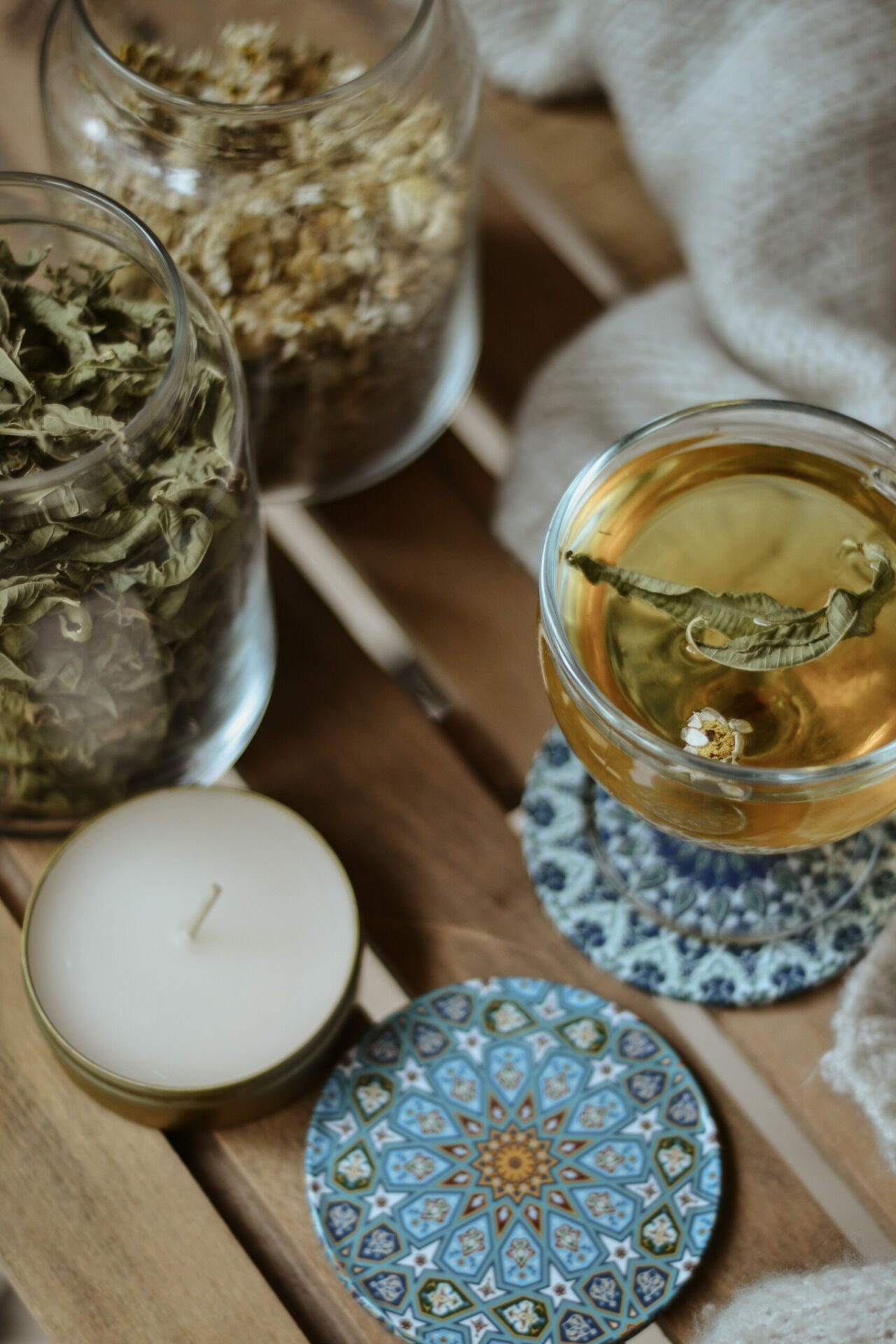


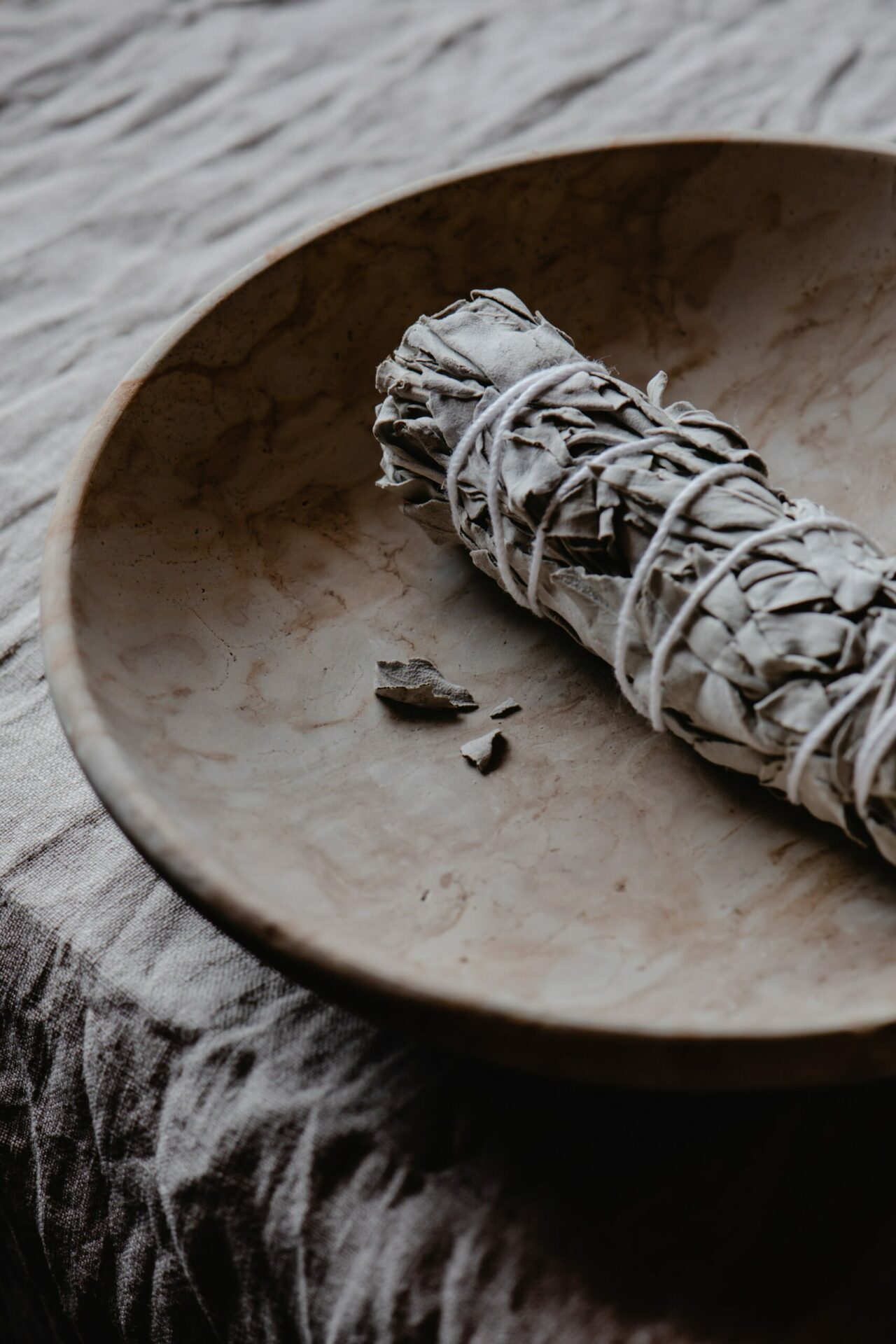

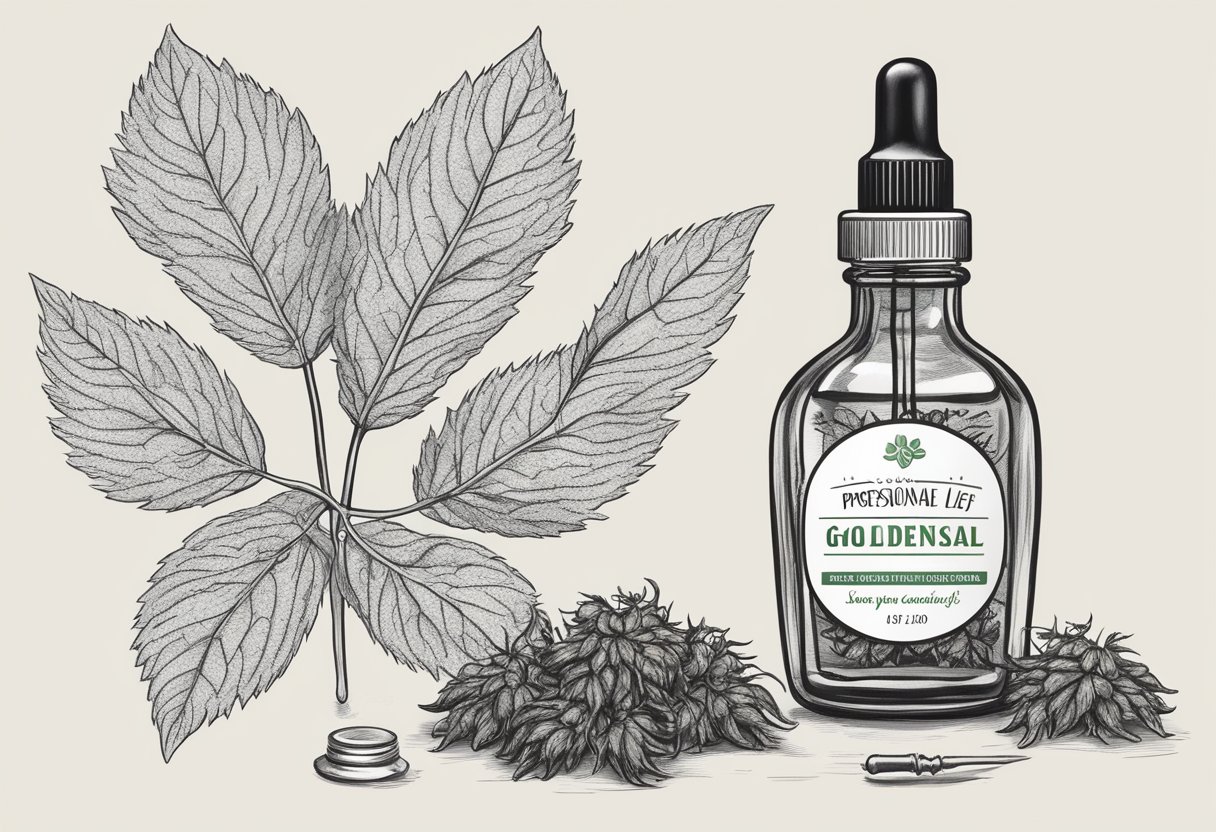
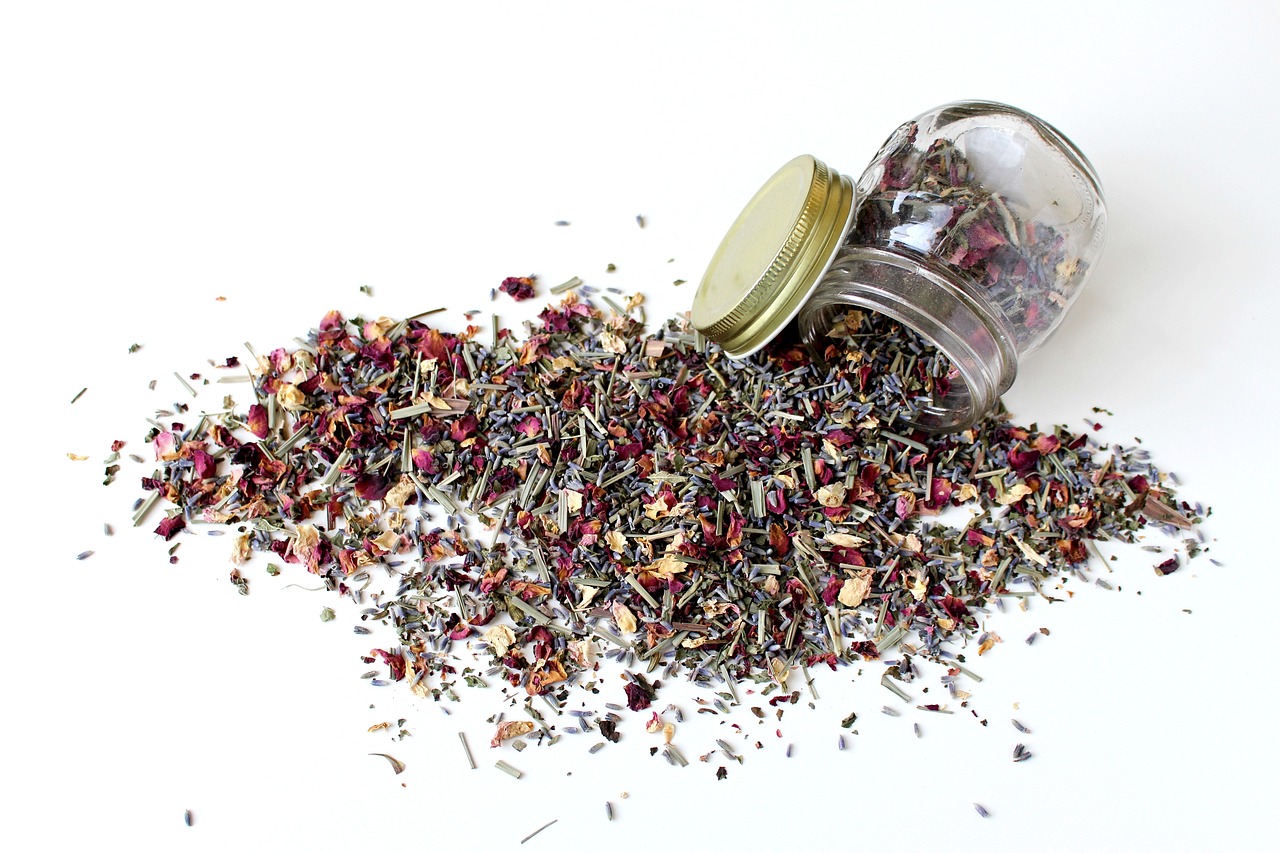
One comment on “15 Herbal Tea Blends for Hormonal Balance”